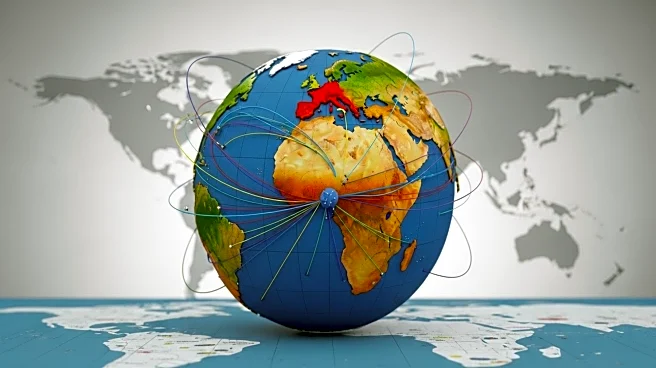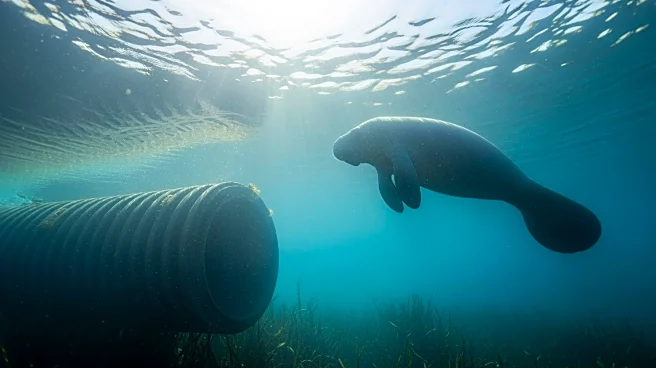What's Happening?
China is actively pursuing superpower status by expanding its influence in Africa and the Caribbean. This strategy involves significant investments in infrastructure, trade, and cultural exchanges. China's Belt and Road Initiative has facilitated numerous construction projects, including highways and residential complexes, transforming local economies and landscapes. However, this expansion raises concerns about whether these regions are genuine partners or merely pawns in China's geopolitical strategy.
Why It's Important?
China's growing presence in Africa and the Caribbean has significant implications for global politics and economics. By establishing strong ties with these regions, China is positioning itself as a counterbalance to Western influence. This could lead to shifts in global alliances and economic dependencies. The relationship is complex, as it offers development opportunities but also risks of debt dependency and strategic asset control. The outcome of this dynamic will affect international trade, political alliances, and regional stability.
Beyond the Headlines
The ethical and political dimensions of China's expansion are worth exploring. While China presents itself as a non-interventionist partner, its economic strategies may lead to long-term dependencies that could undermine local autonomy. The cultural and social impacts of China's presence, including the spread of Chinese consumer goods and media, also warrant attention. These developments could reshape cultural identities and economic practices in the affected regions.











